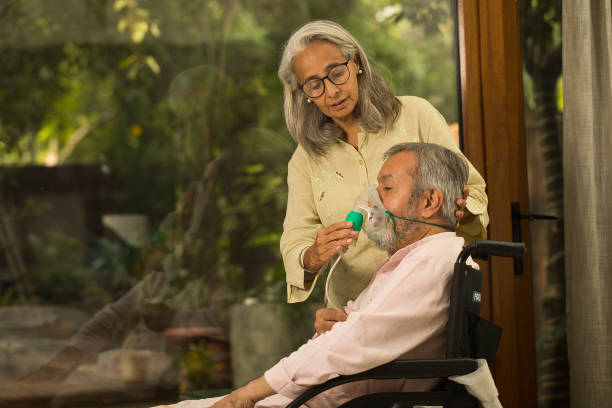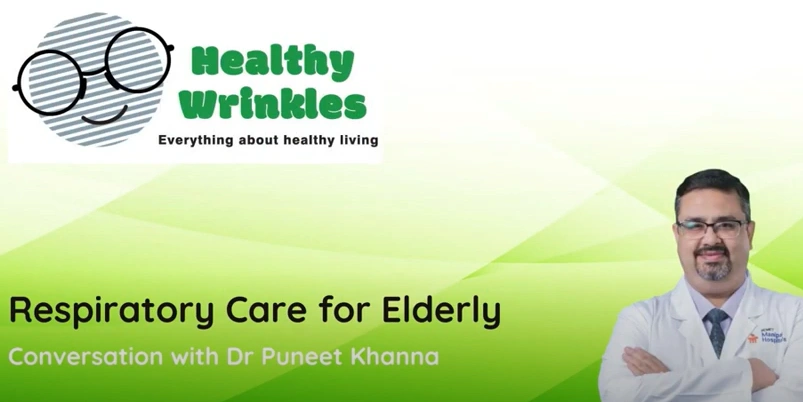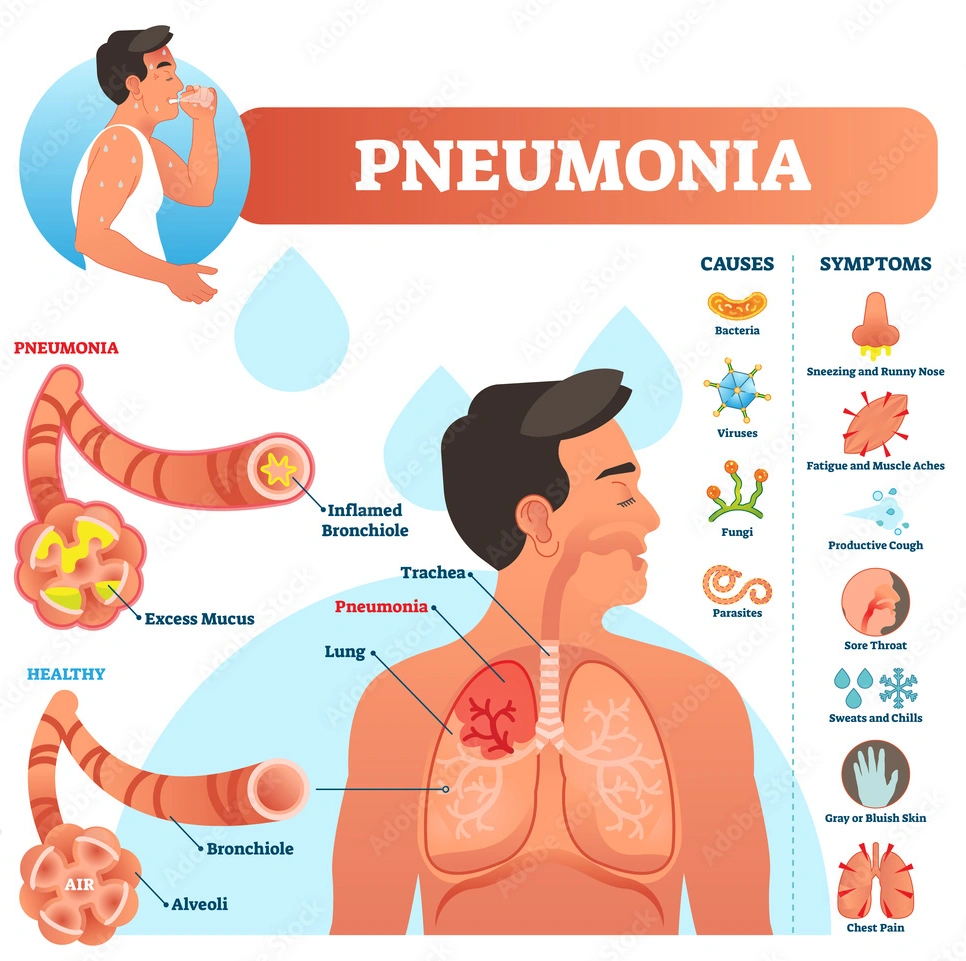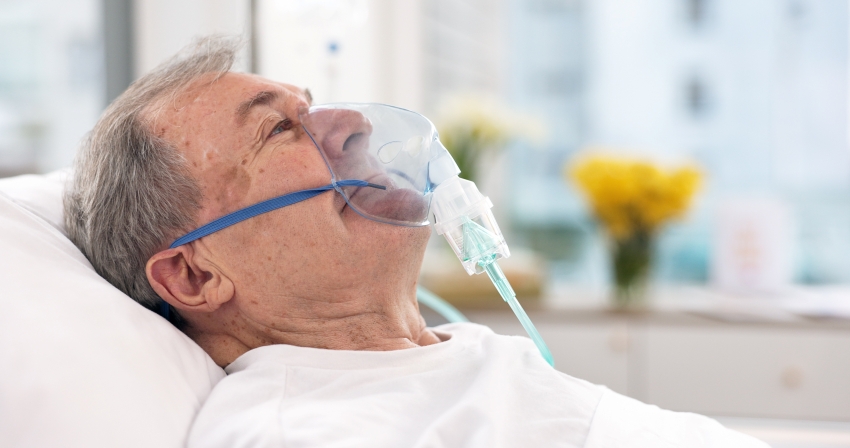Pneumonia in Older Adults Symptoms, Causes, Prevention and Treatment
03-10-24
Why Pneumonia Deserves Special Attention in Older Adults
Pneumonia is a lung infection that fills the air sacs with fluid or pus, making breathing difficult. Although anyone can get it, it poses a much higher risk for people over 65.
As we age, the immune system weakens, and the body takes longer to fight off infections. This means pneumonia can lead to serious complications, extended hospital stays, and slower recovery in older adults.
Recognizing Pneumonia Symptoms in Seniors
Older adults often experience pneumonia differently from younger people. Instead of typical signs like fever and cough, the symptoms may be vague or subtle.
Early attention matters — so watch for sudden or unexplained changes such as:
-
Feeling weak or unsteady (more frequent falls)
-
Confusion, disorientation, or delirium
-
Low body temperature instead of fever
-
Fatigue or loss of appetite
-
Urinary incontinence
-
Decline in daily functioning or worsening of existing health issues
If these appear suddenly, contact a doctor right away.
Common Causes of Pneumonia in Older Adults
Pneumonia can develop in several ways:
Where It’s Caught:
-
Community-acquired pneumonia (CAP): Caught outside of hospitals; a leading cause of hospitalization among seniors.
-
Hospital-acquired pneumonia: Occurs during a hospital stay, especially with weakened immunity or long admissions.
-
Aspiration pneumonia: Happens when food, saliva, or liquids accidentally enter the lungs — common among those with swallowing difficulties.
Germs That Cause It:
-
Streptococcus pneumoniae and Haemophilus influenzae (bacteria)
-
Viruses like influenza or COVID‑19
-
Fungal infections (rare but serious in people with weak immunity)
Preventing Pneumonia in Seniors
Prevention is the best medicine, especially for older adults. A few steady habits go a long way:
-
Vaccinations: Pneumococcal (PCV13 and PPSV23) and annual flu shots reduce pneumonia risk.
-
Hand hygiene: Regular handwashing prevents germ spread.
-
Avoid smoking: It harms lung health and slows recovery.
-
Healthy lifestyle: A balanced diet, regular movement, and good sleep strengthen immunity.
-
Stay hydrated: Fluids keep airways moist and lungs healthier.
Treating Pneumonia in the Elderly
Treatment depends on how severe the infection is and the person’s overall health.
Mild cases can often be managed at home with medication, rest, and plenty of fluids.
Severe cases may need hospital care, including:
-
IV antibiotics and fluids
-
Oxygen therapy
-
Breathing support (in critical cases)
For recovery at home:
-
Eat nutritious meals
-
Stay hydrated
-
Rest often
-
Keep other chronic conditions under control
Encouraging Proactive Care
When it comes to pneumonia, early recognition and prompt treatment make a big difference. Good hygiene, up‑to‑date vaccines, and quick response to new symptoms can prevent serious outcomes.
Proactive care helps older adults breathe easier, recover faster, and maintain their independence.
At Healthy Wrinkles, we support seniors through every step of pneumonia prevention and recovery. From skilled physiotherapists who help improve lung capacity and mobility, to medical equipment like oxygen concentrators and nebulizers, and our reliable nursing bureau services across Mumbai, we ensure safe, comfortable, and continuous care right at home — helping older adults heal faster and stay independent.
FAQs
Q1. How can I spot early pneumonia in my elderly parent?
Watch for subtle changes — new confusion, unusual fatigue, poor appetite, or general weakness — even without a cough or fever.
Q2. What can I do at home to help prevent pneumonia?
Encourage regular vaccinations, keep living spaces clean, avoid smoke, and make sure your loved one eats and drinks well every day.
Q3. When should I call a doctor?
If you notice labored breathing, chest pain, high or low temperature, confusion, or worsening tiredness, don’t wait — seek medical help immediately




